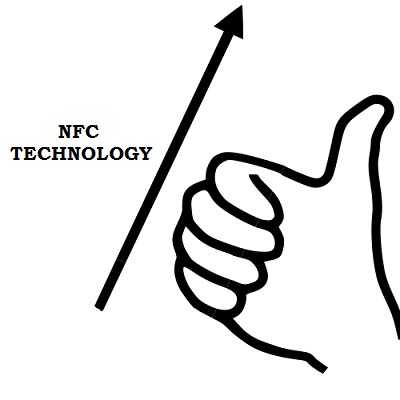Vodafone to launch new mobile commerce application in 2013
Vodafone Australia, one of the country’s leading mobile network operators, has teamed with Visa to launch the Vodafone SmartPass, which will be available to consumers next year. Vodafone has taken note of the growing interest Australian consumers are showing in mobile commerce and is taking steps to provide consumers with new service that align with the demands of customers. Visa is also keen to meet the rising demand for mobile commerce and has been working to develop a platform that consumers can use to make payments with their smart phones.
of the country’s leading mobile network operators, has teamed with Visa to launch the Vodafone SmartPass, which will be available to consumers next year. Vodafone has taken note of the growing interest Australian consumers are showing in mobile commerce and is taking steps to provide consumers with new service that align with the demands of customers. Visa is also keen to meet the rising demand for mobile commerce and has been working to develop a platform that consumers can use to make payments with their smart phones.
Application allows for mobile purchases
The Vodafone SmartPass is a mobile application developed for the Android platform. The application allows users to make purchases using the financial information associated with a prepaid account. Though the Vodafone SmartPass can access the information associated with this account, the application does not create the account itself. Consumers will need to attain an NFC-enabled SIM card from Vodafone in order for the application to work properly.
NFC SIM card adds extra layer of security
The NFC SIM card contains a blank account that can be filled with cash from consumers. This is meant to add an extra layer of security to the platform, addressing some of the concerns consumers have had recently regarding the overall safety of mobile commerce. The prepaid account is not capable of drawing money from an existing bank account. As such, consumers will need to manually refill their accounts if they make regular purchases, or they can set up a specific date when their account will be filled automatically, per approval.
Scarcity of NFC-devices may slow growth of mobile commerce
Minor purchases can be made with a simple wave of a smart phone, while larger purchases will require additional authorization. Vodafone and Visa expect that mobile commerce will continue to generate hype and become a more popular practice amongst consumers. NFC-enabled mobile devices are still rare, however, so the growth of mobile commerce may be slowed until these devices become more available to consumers around the world.
Broadcom continues to show strong support for NFC technology
NFC technology has hit something of a rough patch in the technology sector, especially in regards to its use in mobile commerce. Much of the mobile commerce industry has been built on NFC technology, but some technology companies, financial institutions, and consumers have expressed concerns over the security of NFC. In light of security concerns, some have begun moving away from NFC technology, hoping to find alternatives without having to abandon the mobile commerce industry. Others, however, continue to show strong support for NFC technology., Such is the case with Broadcom, a California-based chipmaker.
of a rough patch in the technology sector, especially in regards to its use in mobile commerce. Much of the mobile commerce industry has been built on NFC technology, but some technology companies, financial institutions, and consumers have expressed concerns over the security of NFC. In light of security concerns, some have begun moving away from NFC technology, hoping to find alternatives without having to abandon the mobile commerce industry. Others, however, continue to show strong support for NFC technology., Such is the case with Broadcom, a California-based chipmaker.
Nexus 4 popularity boosts interest surrounding NFC
Broadcom built the NFC chip and controller that is used in Google’s Nexus 4 mini-tablet device. The Nexus 4 launched earlier this month and Google has seen a great deal of interest for the product, especially in the UK market where stores have sold out of the device due to high demand. The device’s features have been widely praised, especially its use of NFC technology. Broadcom considers the popularity of the Nexus 4 a major win, suggesting that it is attracting more interest to NFC technology by showing off the capabilities of NFC.
Broadcom software freely available
Broadcom has now introduced its NFC software to the Android Open Source Project as well as to the Android 4.2 operating system. This has made the software widely available for anyone interested in using it — for free. Broadcom is well aware of the risks associated with making its NFC software freely available. The company notes that pushing NFC standards throughout the industries that use the technology is a top priority, however. By making its software available, Broadcom aims to help expedite the standardization of NFC technology.
NFC for more than just mobile commerce
NFC technology is widely used as a mobile commerce tool. The technology can allow mobile devices to make purchases in a way similar to credit cards. The technology also has uses beyond mobile commerce and has found some success in the marketing industry. NFC can also be used effectively as a form of wireless data transfer. Broadcom believes that its software can help establish standards in numerous industries that will ensure consumers have a positive experience with NFC technology.
 of the country’s leading mobile network operators, has teamed with Visa to launch the Vodafone SmartPass, which will be available to consumers next year. Vodafone has taken note of the growing interest Australian consumers are showing in mobile commerce and is taking steps to provide consumers with new service that align with the demands of customers. Visa is also keen to meet the rising demand for mobile commerce and has been working to develop a platform that consumers can use to make payments with their smart phones.
of the country’s leading mobile network operators, has teamed with Visa to launch the Vodafone SmartPass, which will be available to consumers next year. Vodafone has taken note of the growing interest Australian consumers are showing in mobile commerce and is taking steps to provide consumers with new service that align with the demands of customers. Visa is also keen to meet the rising demand for mobile commerce and has been working to develop a platform that consumers can use to make payments with their smart phones.
 of a rough patch in the technology sector, especially in regards to its use in mobile commerce. Much of the mobile commerce industry has been built on NFC technology, but some technology companies, financial institutions, and consumers have expressed concerns over the security of NFC. In light of security concerns, some have begun moving away from NFC technology, hoping to find alternatives without having to abandon the mobile commerce industry. Others, however, continue to show strong support for NFC technology., Such is the case with Broadcom, a California-based chipmaker.
of a rough patch in the technology sector, especially in regards to its use in mobile commerce. Much of the mobile commerce industry has been built on NFC technology, but some technology companies, financial institutions, and consumers have expressed concerns over the security of NFC. In light of security concerns, some have begun moving away from NFC technology, hoping to find alternatives without having to abandon the mobile commerce industry. Others, however, continue to show strong support for NFC technology., Such is the case with Broadcom, a California-based chipmaker.